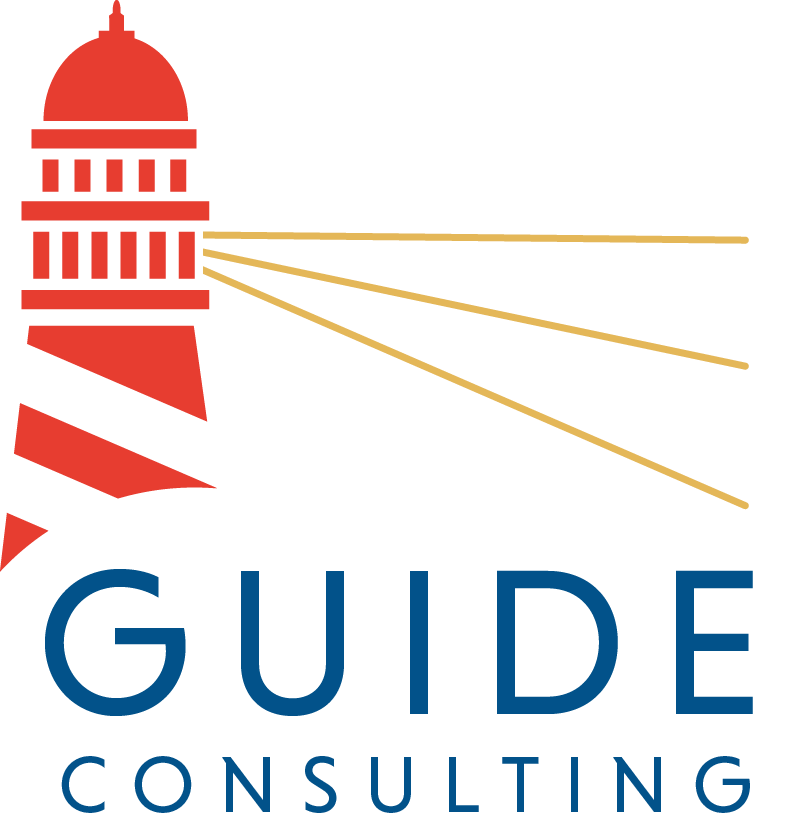ADMINISTRATIVE ASSISTANT: POLICY SUPPORT
***WE ARE NO LONGER ACCEPTING APPLICATIONS FOR THIS POSITION***
Guide Consulting Services OVERVIEW:
Guide Consulting Services (GCS) is an advocacy, policy advisory, and government relations firm advancing and defending the specialized social and business issues of health care nonprofits, associations, and companies. Our clients are concentrated in mental and behavioral health care, suicide prevention and crisis services, Medicare/Medicaid, and social services delivery. We achieve results for our clients through strategy, legislative drafting, government relations, and public affairs.
POSITION OVERVIEW:
The position entails organizational and administrative coordination for GCS’s internal needs. We are primarily seeking a candidate to edit documents, coordinate calendar management, maintain task lists, and cover a general range of administrative support tasks in addition to basic legislative research. As a small team, we value independent, organized, and detail-oriented applicants. Applicants should be skilled at anticipating workflow needs and be capable of effective communication. We are based in Washington, D.C and envision a full-time, in-person office schedule for this role. This position is ideal for someone seeking a standard administrative job or for a recent college graduate seeking first time exposure to the health policy industry.
POSITION RESPONSIBILITIES:
Position responsibilities include, but are not limited to, the following:
Assist team with organization operations and managing clients
Schedule and coordinate internal and external meetings, including calendar management
Send meeting agendas, take minutes, and distribute notes as needed
Proofread and format correspondence, reports, and other documents
Prepare and organize materials for meetings and presentations
Draft and submit standard quarterly activity reports
Provide tailored support to the firm’s CEO
Conduct basic legislative research
Attend and take notes at briefings, roundtables, and other policy events
QUALIFICATIONS/SKILLS:
The ideal candidate will possess the following qualifications:
Bachelor’s degree or equivalent work experience
Proficiency with Microsoft Suite (Word, Excel, Outlook, and PowerPoint), Google Suite (Docs, Slides, and Sheets), and video platform applications such as Zoom
Strong writing and editing skills, including the ability to provide summarized information
Preference for familiarity with government relations, health care, or related industries
The ideal candidate will have the following skills:
Highly organized, detail-oriented, and able to work in a fast-paced environment
Basic research skills
Excellent interpersonal and communications skills
Ability to make informed decisions
Ability to work independently
Ability to multi-task and work with quick turnarounds
General facility with social media and online capabilities
SALARY & BENEFITS:
Salary range is $50,000 annually. Competitive benefits offered include employer paid health, dental, and transportation. Extensive paid vacation, retirement contribution, and professional development are included in employment package.
This is a full-time, exempt position at 40 hours per week within standard office hours. This position is based in Washington, DC and will primarily be an in-person role.
HOW TO APPLY:
If interested, please submit a resume, 1-5 page writing sample, and 1-3 references to info@guidelobby.com with the subject line “Assistant – (your last name).” If you do not have a recent writing sample, a cover letter will suffice.
Guide Consulting Services provides equal employment opportunities to all employees and applicants for employment and prohibits discrimination and harassment of any type without regard to race, color, religion, age, sex, national origin, disability status, genetics, protected veteran status, sexual orientation, gender identity or expression, or any other characteristic protected by federal, state or local laws. This policy applies to all terms and conditions of employment, including recruiting, hiring, placement, promotion, termination, layoff, recall, transfer, leaves of absence, compensation and training.





